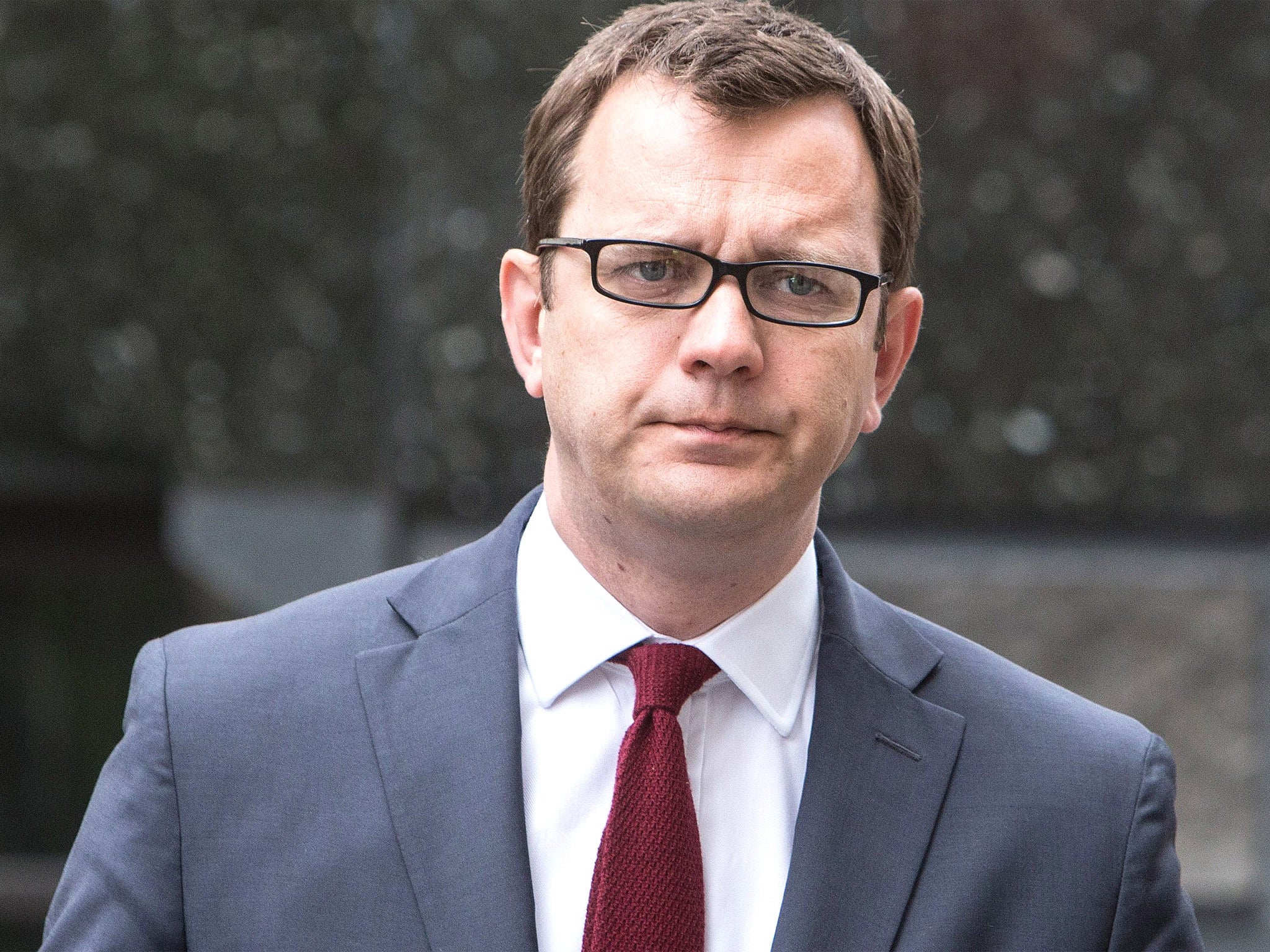Hacking trial: ‘David Cameron may not have given me communications chief job,’ admits Andy Coulson

The Prime Minister, David Cameron, would not have made Andy Coulson his communications chief in 2007, a position which led to the heart of the government in Downing Street, if he had been told by the former News of the World editor what he knew about phone hacking.
Mr Coulson, nearing the end of a three-day cross-examination at the phone hacking trial in the Old Bailey, told the jury that he believed the jobs given to him by Mr Cameron - the Conservatives' head of communications, and later director of communications in 10 Downing Street - may not have happened if he had revealed he knew about the hacking of then home secretary, David Blunkett, in 2004.
Mr Coulson also denied he resigned from his government job in January 2011 because he had been warned at a meeting with News International's former chief executive, Rebekah Brooks, that new evidence on illegal phone interceptions from inside Rupert Murdoch's UK print division had just been handed to Scotland Yard.
Questioned by the prosecution's lead counsel, Andrew Edis QC, Mr Coulson was asked about his meeting with Mrs Brooks in the Halkin Hotel.
The new evidence, Mr Edis said, meant News International's long-standing position on hacking “was blown out of the water”.
Mr Coulson said he could not remember that Mrs Brooks had warned him, though he accepted this was “possible”, adding that he had already decided his position in Number 10 was “impossible.”
The jury has heard that Mr Coulson was told by the NOTW's former chief reporter, Neville Thurlbeck, that details of an affair between the former home secretary, David Blunkett, and the publisher, Kimberley Quinn, had been obtained from illegal phone hacking which took place in 2004.
The court has heard that Mr Coulson and Mrs Brooks engaged in a nine year intermittent and intimate affair that began in 1998. Mrs Brooks told the jury in her evidence that Mr Coulson trusted her enough to reveal “any confidence” including potential criminality.
Mr Coulson, 46, denies he told Mrs Brooks during the Halkin meeting that he was about to resign from Downing St.
Mr Edis put it to Mr Coulson that he knew evidence revealed in 2007 about hacking, which limited criminality to Clive Goodman, the tabloid's former royal editor, and the private investigator, Glenn Mulcaire, was “rubbish” because he knew about the Thurlbeck hacking.
Mr Coulson said he had been told the Thurlbeck hacking had nothing to do with Mulcaire, but could not remember who had told him.
Mr Edis said the arrests of Goodman and Mulcaire was a potential “life-changing” event for the editor of the NOTW. “Are you really saying you don't remember who told you [that Mulcaire was not involved in the Blunkett hacking]? Mr Coulson replied: “I don't remember.”
Mr Edis told the court that what was known of phone hacking inside NI by executives, including a lawyer, had been kept from the police.
“It was a cover-up,“ said Mr Edis. Mr Coulson replied “Not by me.”
He later denied that his resignation as editor of the NOTW in 2007 had been made to look like he was “a man of honour”. Mr Coulson said he did not see himself as a man of honour.
Seven defendants in the trial, including Mr Coulson, face various charges including conspiracy to phone hack, involvement in the bribery of public officials and perverting the course of justice. All the charges are denied.
The case continues.
